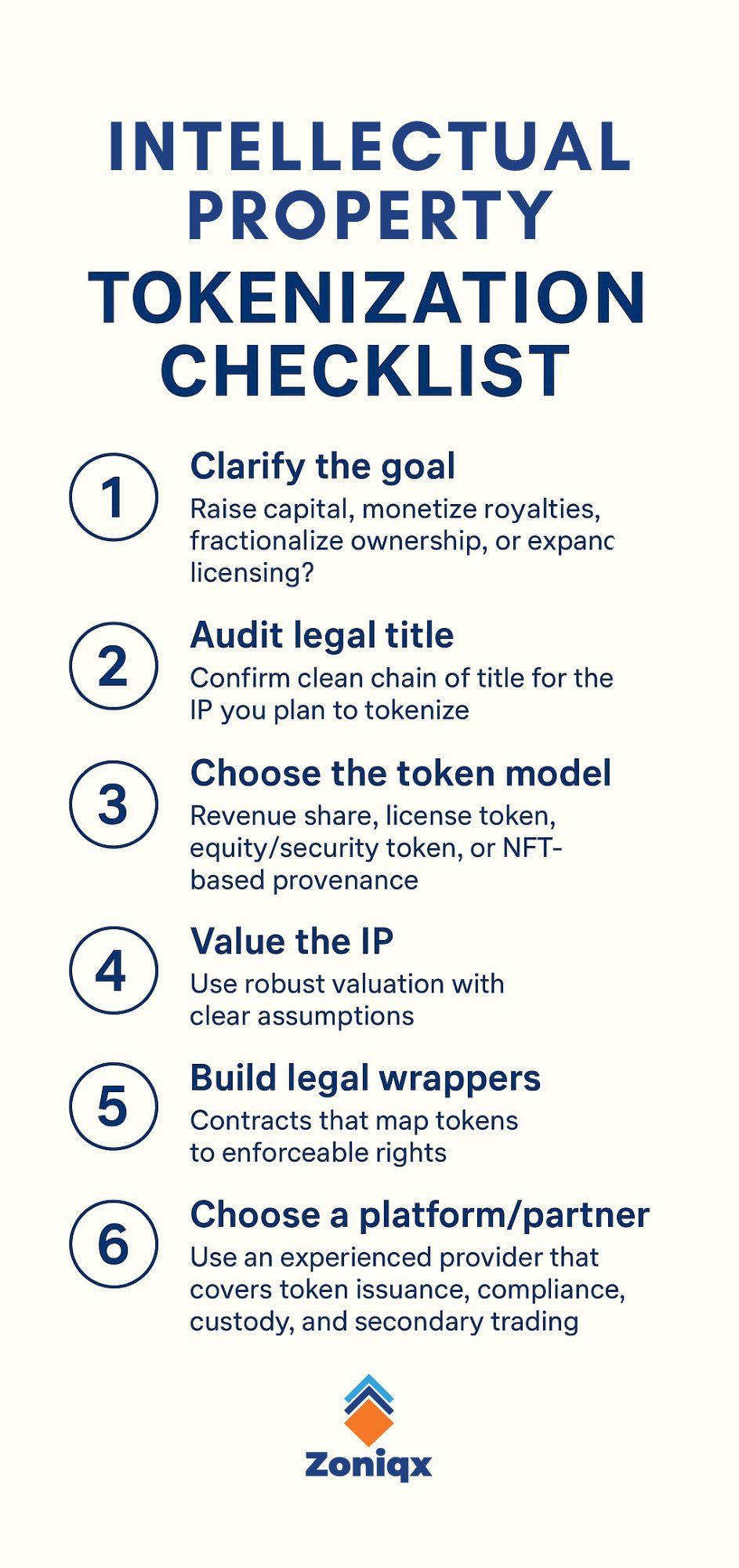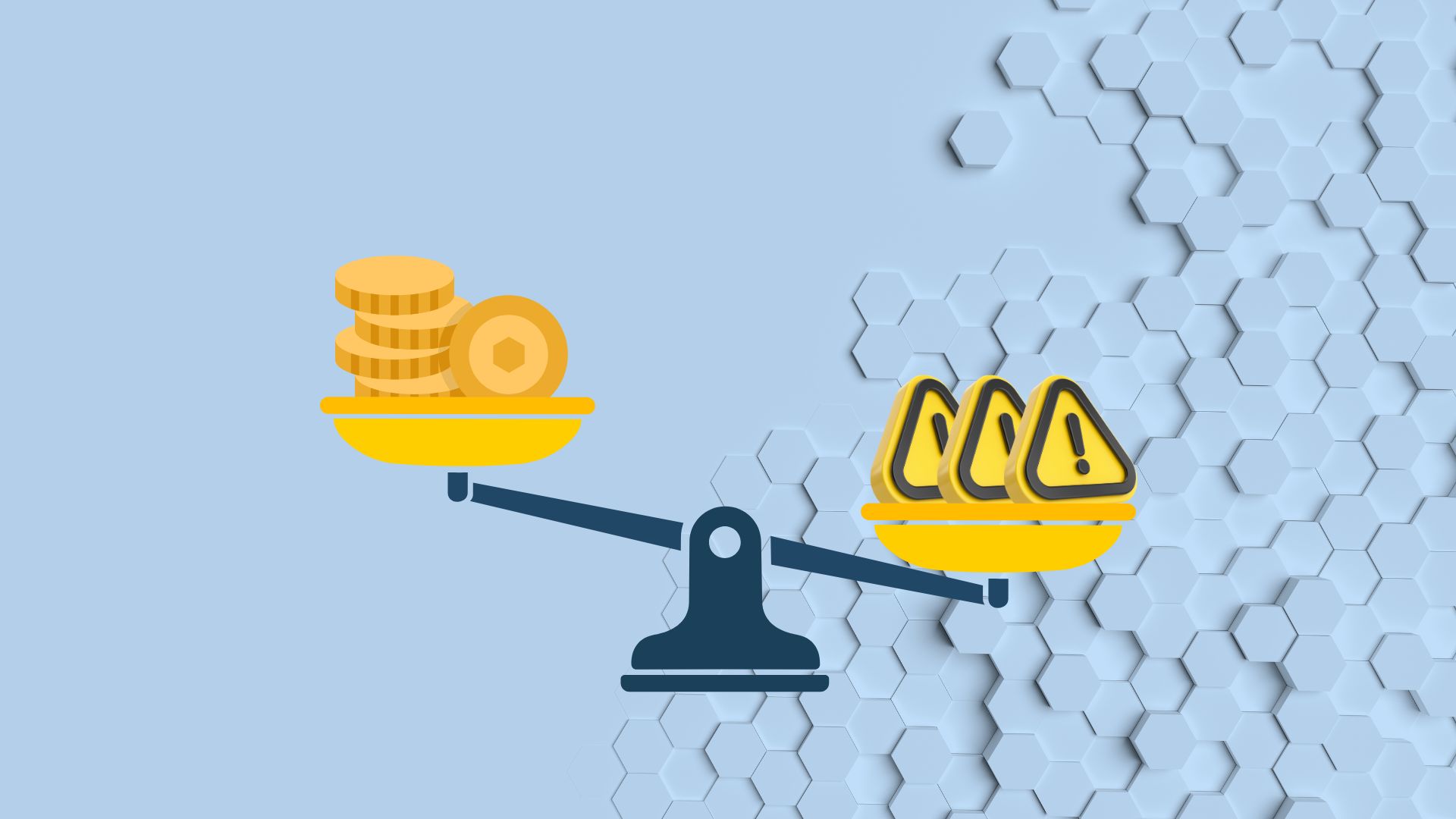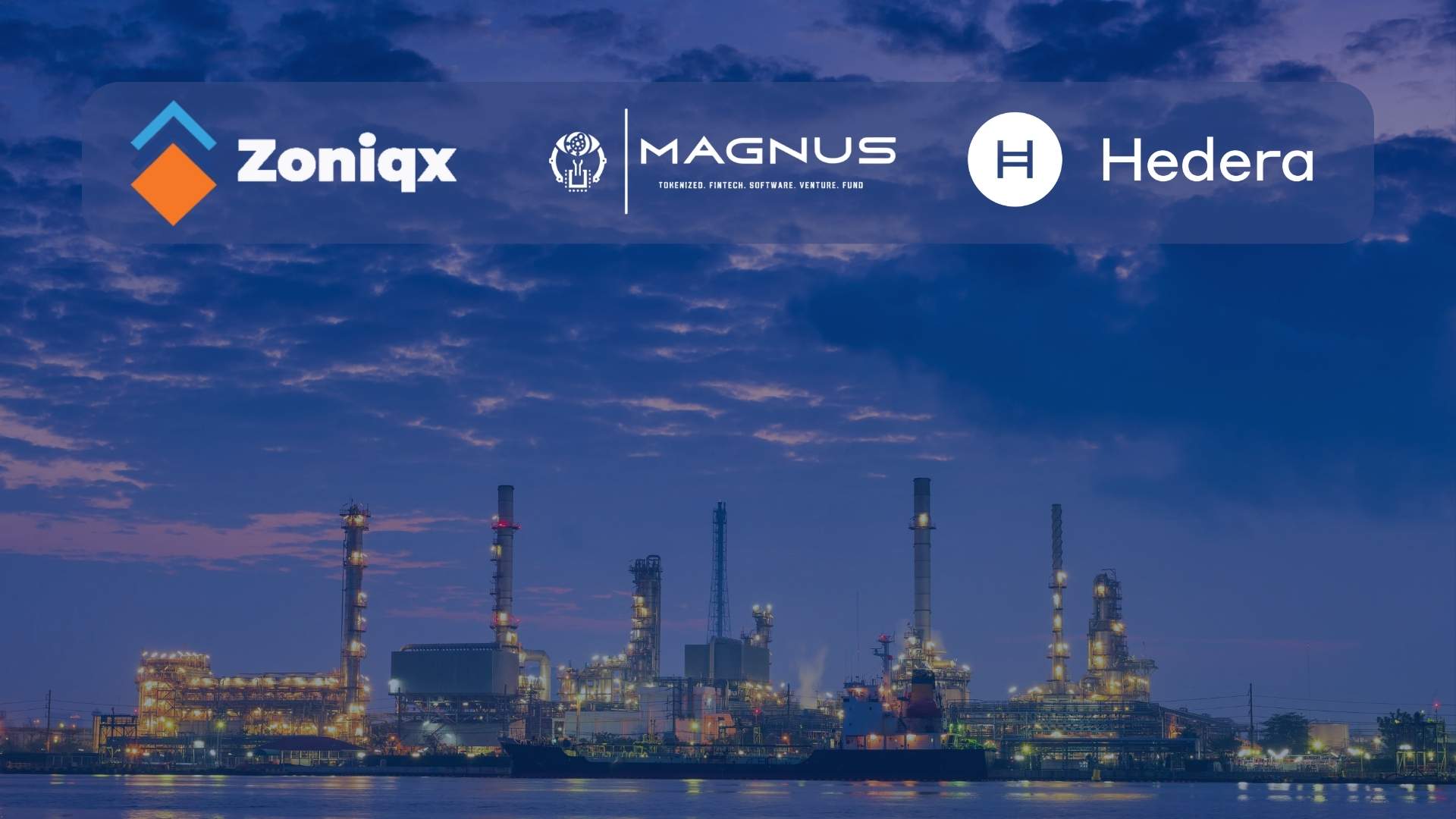Top FAQs on Tokenizing Intellectual Property
Tokenization is reshaping how creators, businesses and investors unlock value from intellectual property (IP). Below are the most common questions we hear, answered clearly and practically, with helpful resources to help you move from idea to issuance.
1. What does “tokenizing intellectual property” actually mean?
Tokenizing IP means representing rights, revenue streams or usage/licensing claims tied to copyrights, patents, trademarks or other IP as digital tokens on a blockchain. Those tokens can represent fractional economic rights (e.g., future royalty streams), governance rights (who can license), or access rights (who can use a work). Tokenization adds programmability (smart contracts), fractional ownership, and a transparent transaction record.
2. What kinds of IP can be tokenized?
Practically any IP with distinct rights and revenue potential: music catalogs and publishing rights, film/TV royalties, patent portfolios (future licensing income), trademarks tied to revenue streams, and even design rights or databases. The commercial structure (royalty stream vs. license vs. ownership) determines how the token is designed.
3. Does a token ever replace the underlying legal IP right?
No, tokenization usually represents rights; it does not magically create or extinguish legal IP ownership. Smart contracts and off-chain legal agreements must align to ensure tokens map accurately to real-world rights (e.g., license vs. ownership, percentage of royalties). Properly drafted legal wrappers are essential to avoid mismatch between what a token promises and the legal reality.
4. Can tokenized IP be treated like a security? Will regulators care?
Often, yes. Many token structures that promise future cash flows (royalties, revenue shares) may fall under securities laws in some jurisdictions. The answer depends on the token’s economics, marketing, and jurisdictional tests. Regulatory analysis is a must before issuance; most institutional-grade token platforms (including Zoniqx’s TPaaS) embed compliance and securities checks into the issuance flow.
5. How are royalties and revenue distributed to token holders?
Smart contracts automate distribution rules (pro rata royalty splits, waterfalls, periodic payouts). But automation must be backed by on-chain/off-chain reporting: reliable revenue or usage data must be fed into the contract (via oracles, payment integrations or custodial accounting). Combining smart contracts with an audited off-chain settlement process gives both automation and legal enforceability.
6. How do you value IP for tokenization?
IP valuation blends quantitative and qualitative methods: historical earnings (royalties), comparable market deals, discounted cash flows of projected royalties, and market demand for the IP’s use. Tokenization can allow real-time price discovery, but initial valuation and transparent assumptions are critical for investor trust. WIPO and recent industry work highlight how tokenization can enable real-time valuation frameworks when combined with robust data.
7. What technical standards and platforms do people use?
Platforms vary. Some issuers use ERC-20/ERC-721/ERC-1400 variants for fungible/non-fungible/security tokens; others use specialized security token standards and compliance layers. Institutional tokenization platforms (like Zoniqx) provide the whole stack: token minting, compliance gates, custody integrations and secondary market plumbing, removing much of the complexity for issuers.
8. Licensing vs. ownership: which token type should I issue?
Decide what you want to sell. If you want to sell a slice of future revenues, a revenue-share/security token is typical. If you want to sell non-exclusive usage rights, issue license tokens (clearly defined in contract). If you transfer the full legal title to the IP, tokens must be accompanied by assignment paperwork. Clarity in token terms and the legal wrapper is crucial.
9. How do I protect IP from misuse after tokenization?
Tokenization doesn’t change IP enforcement; you still need traditional IP protection (registrations, contracts, enforcement strategies). For digital content, you can use smart contracts to encode usage rules, DRM integrations for distribution, and on-chain provenance to show authenticity, but enforcement of infringement still relies on IP law and platform cooperation.
10. Are there marketplaces for tokenized IP? How liquid are these tokens?
Emerging marketplaces and secondary trading venues are developing, but liquidity depends on asset quality, investor interest, and regulatory clarity. High-quality, revenue-generating IP (e.g., well-known music catalogs or patent families with licensing pipelines) attracts more liquidity than speculative assets. Institutional platforms that connect vetted issuers and compliant investor pools increase liquidity prospects.
11. Biggest legal and operational risks in IP tokenization?
Key risks: (1) misalignment between token economics and legal rights, (2) regulatory non-compliance (securities, tax), (3) poor revenue data or weak oracles, (4) IP disputes (ownership or infringement), and (5) custody and counterparty risk.
Mitigations: thorough legal wrappers, regulated custody, audit trails, strong reporting, and using experienced tokenization providers.
12. How should creators and companies get started?

- Clarify the goal: Raise capital, monetize royalties, fractionalize ownership, or expand licensing?
- Audit legal title: Confirm clean chain of title for the IP you plan to tokenize.
- Choose the token model: Revenue share, license token, equity/security token, or NFT-based provenance.
- Value the IP: Use robust valuation with clear assumptions.
- Build legal wrappers: Contracts that map tokens to enforceable rights.
- Choose a platform/partner: Use an experienced provider that covers token issuance, compliance, custody and secondary trading. Zoniqx guides institutions through these exact steps.
Want a practical next step?
If you’re evaluating IP tokenization for a catalog, patent family or creative portfolio, start with a feasibility and compliance review. Zoniqx offers an end-to-end path from deal setup to compliant issuance and secondary market integration. Explore the platform and request a demo today.
About Zoniqx
Zoniqx (pronounced "Zoh-nicks") is a global fintech leader headquartered in Silicon Valley, specializing in converting real-world assets into security tokens. Through its suite of innovations including zProtocol (DyCIST/ ERC-7518), zCompliance, zConnect, zPayRails, and zIdentity, Zoniqx is powering the future of finance, enabling global liquidity, compliance automation, and Web3 integration.
It offers an interoperable, compliant infrastructure for the RWA tokenization market, enabling global liquidity and DeFi integration through its end-to-end ecosystem of SDKs and APIs. Zoniqx pioneers on-chain, fully automated RWA deployment on public, private, and hybrid chains. For more information, visit www.zoniqx.com.
To explore how Zoniqx can assist your organization in unlocking the potential of tokenized assets or to discuss potential partnerships and collaborations, visit www.zoniqx.com/contact.
Disclaimer
This article is for informational purposes only and does not constitute legal, financial, or regulatory advice. References to SEC are based on public statements and do not imply endorsement or legal interpretation. Readers are encouraged to consult with legal or regulatory professionals before engaging in asset tokenization. Zoniqx operates in full compliance with applicable laws and supports regulatory clarity in the tokenization ecosystem.
References
- Zoniqx. Tokenization Platform as a Service (TPaaS) — product page. Zoniqx
- Zoniqx. Detailed step-by-step: How to Tokenize an Asset (explains lifecycle & compliance). Zoniqx
- WIPO / ETISC. “Why Real-time IP Valuation via Tokenization Is A Game Changer”. eTISC
- Mondaq. “Unlocking Wealth: Tokenizing Intellectual Property Now”. Mondaq
- BlockApps. “Challenges in Tokenizing and Trading Intellectual Property”. BlockApps Inc



